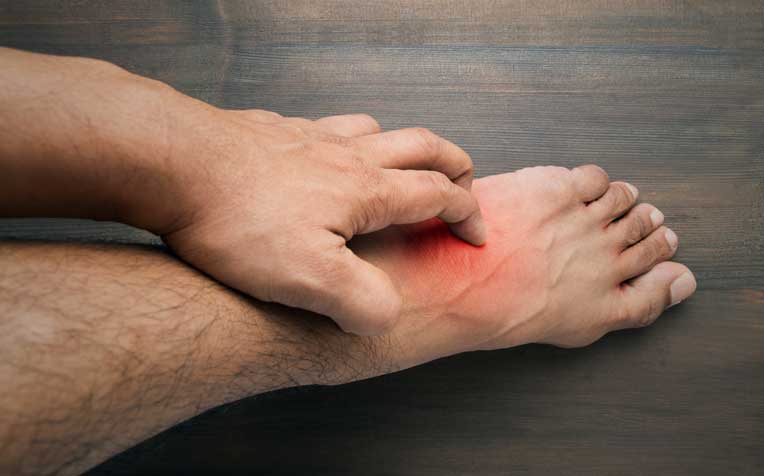
Ringworm can be treated with antifungal creams.
Ringworm: How to treat
Topical creams
Antifungal creams – belonging to the azole class (such as clotrimazole and miconazole) or allylamine class (for example, terbinafine) – are effective treatments in most cases. These creams, available off the counter, must be applied once or twice daily, for two to four weeks.
However, if you’re unsure if you indeed have ringworm, if the rash fails to respond to topical treatment, or if the infection becomes extensive, be sure to check with your doctor as oral antifungal agents may be needed. Patients with fungal infections of the scalp and nails should also consult a doctor to get the most effective treatment.
The Department of Dermatology from Singapore General Hospital (SGH), a member of the SingHealth group, offers the following advice for tinea cruris (jock itch):
Make sure to check for, and treat, athlete’s foot to avoid cross-infection
Apply talcum or other dessicant powder to keep the affected area dry
Avoid hot baths and tight-fitting clothes (for example, men should wear boxers instead of briefs)
Are home remedies effective against ringworm?
Although there have been reports that a chemical compound isolated from garlic was successfully used as an antifungal agent, this does not mean that garlic itself is a remedy for fungal infections. After all, the compound concentration in a single piece of garlic may be insufficient, and rubbing garlic onto the skin is more likely to irritate it.
Some also believe that applying apple cider vinegar over the affected area can help get rid of ringworm, but there have been instances where this has resulted in chemical burns to the skin, warns Dr Koh.
“As topical antifungal creams are readily available and are generally very well tolerated, it may be better for patients to use these rather than try home remedies,” Dr Koh advises.
Tips to prevent the spread of ringworm
While ringworm is contagious, there are steps you can take to reduce its spread. If you or a loved one at home has ringworm:
Get off-the-counter antifungal cream or consult your doctor
Avoid sharing personal items, such as hats, hair styling tools, towels and shoes with the infected person
Wash the infected person’s laundry and bed linen separately
Wash your hands frequently as fungi can survive on furniture
Avoid scratching the affected areas as it could spread to other parts of your body
Dry yourself thoroughly after bathing and change your underwear and socks daily
Have the rest of your family members check themselves for signs of infection
Ref: R14
Also, check out our other articles on skin health:
Dry Skin: Causes and Coping Tips
Contributed by














 Get it on Google Play
Get it on Google Play